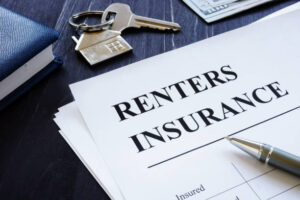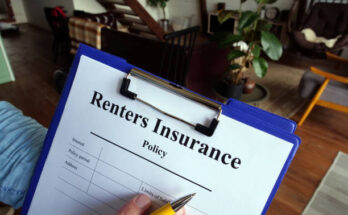Renting your first apartment or house is a significant milestone in life, marking a shift toward independence and responsibility. However, navigating the rental landscape can be challenging for first-time renters. From understanding lease agreements to budgeting effectively, there are several key considerations that can make the process smoother and more enjoyable. In this article, we will explore a comprehensive set of tips for first-time renters, covering everything from finding the right property to maintaining a positive relationship with landlords and neighbours.
-
Set a Realistic Budget
 (Photo from iStock)
(Photo from iStock)
One of the first steps in the rental process is establishing a realistic budget. The general rule of thumb is to allocate no more than 30% of your monthly income to rent. This ensures that you have enough funds for other essential needs and unexpected expenses. Create a detailed budget to track your spending and make informed financial decisions.
-
Research the Rental Market
Before diving into the rental market, conduct thorough research on the neighbourhoods you’re interested in. Take note of local amenities, safety ratings, and proximity to your workplace or educational institution. Additionally, research the current rental market trends to understand average rental prices in the area. This information will empower you to negotiate better lease terms and make an informed decision about where to live.
-
Start Early and Be Prepared
Start your search early to increase your chances of finding the perfect property. Being prepared includes having all the necessary documentation ready, such as proof of income, rental history, and references. This proactive approach demonstrates to landlords that you are a responsible and serious applicant, giving you an edge over other potential renters.
-
Understand the Lease Agreement
 (Photo from iStock)
(Photo from iStock)
If you’re unsure about any clauses, seek clarification from the landlord or a legal professional. Pay close attention to details such as the lease duration, rent amount, security deposit, and any additional fees. Understanding your lease is crucial to avoid misunderstandings and potential disputes in the future.
-
Inspect the Property Carefully
Once you’ve found a property that meets your requirements, conduct a thorough inspection before moving in. Document any existing damage or issues and bring them to the landlord’s attention. Taking pictures and making notes will serve as evidence should there be any disputes over the condition of the property when you move out. A comprehensive inspection helps establish a clear baseline for the property’s condition.
-
Communicate Effectively with the Landlord
Maintaining open and effective communication with your landlord is essential. Landlords appreciate tenants who are proactive about addressing issues, as it helps maintain the property’s condition. Additionally, clear communication can foster a positive relationship, making it easier to discuss lease renewals or other concerns down the line.
-
Know Your Rights as a Renter
Familiarize yourself with tenant rights and landlord responsibilities in your jurisdiction. This knowledge will empower you to advocate for your rights and protect yourself from unfair practices. Most areas have specific laws governing security deposits, eviction procedures, and the right to a habitable living space. Understanding these rights ensures that you can address any legal issues that may arise during your tenancy.
-
Build a Good Relationship with Neighbours
A harmonious relationship with neighbours can significantly enhance your living experience. Introduce yourself, be respectful of shared spaces, and adhere to community guidelines. Building positive relationships with neighbours not only contributes to a pleasant living environment but can also be beneficial in emergency situations or when you need someone to keep an eye on your home when you’re away.
-
Invest in Renter’s Insurance
 (Photo from iStock)
(Photo from iStock)
Renter’s insurance is an affordable way to safeguard your possessions in the event of theft, fire, or other unforeseen circumstances. It provides peace of mind and financial protection, making it a wise investment for any of the renters.
-
Be Mindful of Utility Costs
Utilities can add up quickly, impacting your monthly expenses. Be mindful of energy and water usage to keep costs in check. Consider using energy-efficient appliances and light bulbs to reduce electricity consumption. Additionally, communicate with your landlord about any utility-related concerns, such as leaks or inefficient heating systems, to ensure a comfortable living environment without unnecessary expenses.
-
Plan for Moving Day
The process of moving can be overwhelming, but proper planning can make it more manageable. Create a moving checklist, pack efficiently, and hire reliable movers if needed. Notify utility providers, update your address with relevant institutions, and ensure that all necessary arrangements are in place for a smooth transition. Planning ahead will help minimize stress on moving day and facilitate a seamless move into your new home.
-
Save for Unexpected Expenses
Unexpected expenses are part of life, and being financially prepared for them is crucial. Establish an emergency fund to cover unforeseen costs such as repairs, medical bills, or temporary accommodation in case of emergencies. Having a financial safety net provides peace of mind and ensures that you can handle unexpected challenges without compromising your living situation.
-
Respect the Property and Community Rules
Respecting the property and adhering to community rules are fundamental to being a responsible tenant. Follow any guidelines set by the landlord or property management regarding noise levels, parking, and shared spaces. Being a considerate neighbour fosters a positive living environment for everyone in the community.
-
Plan for Lease Renewal or Move-Out
As your lease expiration approaches, evaluate your living situation and decide whether you want to renew the lease or explore other options. If you plan to move out, provide ample notice to your landlord and start the apartment search well in advance. Planning ahead allows you to make informed decisions and ensures a smooth transition to your next living arrangement.
-
Learn Basic Home Maintenance Skills
While major repairs are typically the landlord’s responsibility, knowing basic home maintenance skills can be beneficial. Learn how to change light bulbs, unclog drains, and address minor repairs. This knowledge not only saves you time and money but also demonstrates your responsibility as renters.
Conclusion
Renting your first property is a significant step toward independence, and with careful planning and consideration, it can be a positive and rewarding experience. By setting a realistic budget, understanding your lease agreement, and fostering positive relationships with landlords and neighbours, you can create a comfortable and enjoyable living environment. Keep these tips in mind as you embark on your journey as a first-time renters, and enjoy the sense of freedom and responsibility that comes with having your own space.




